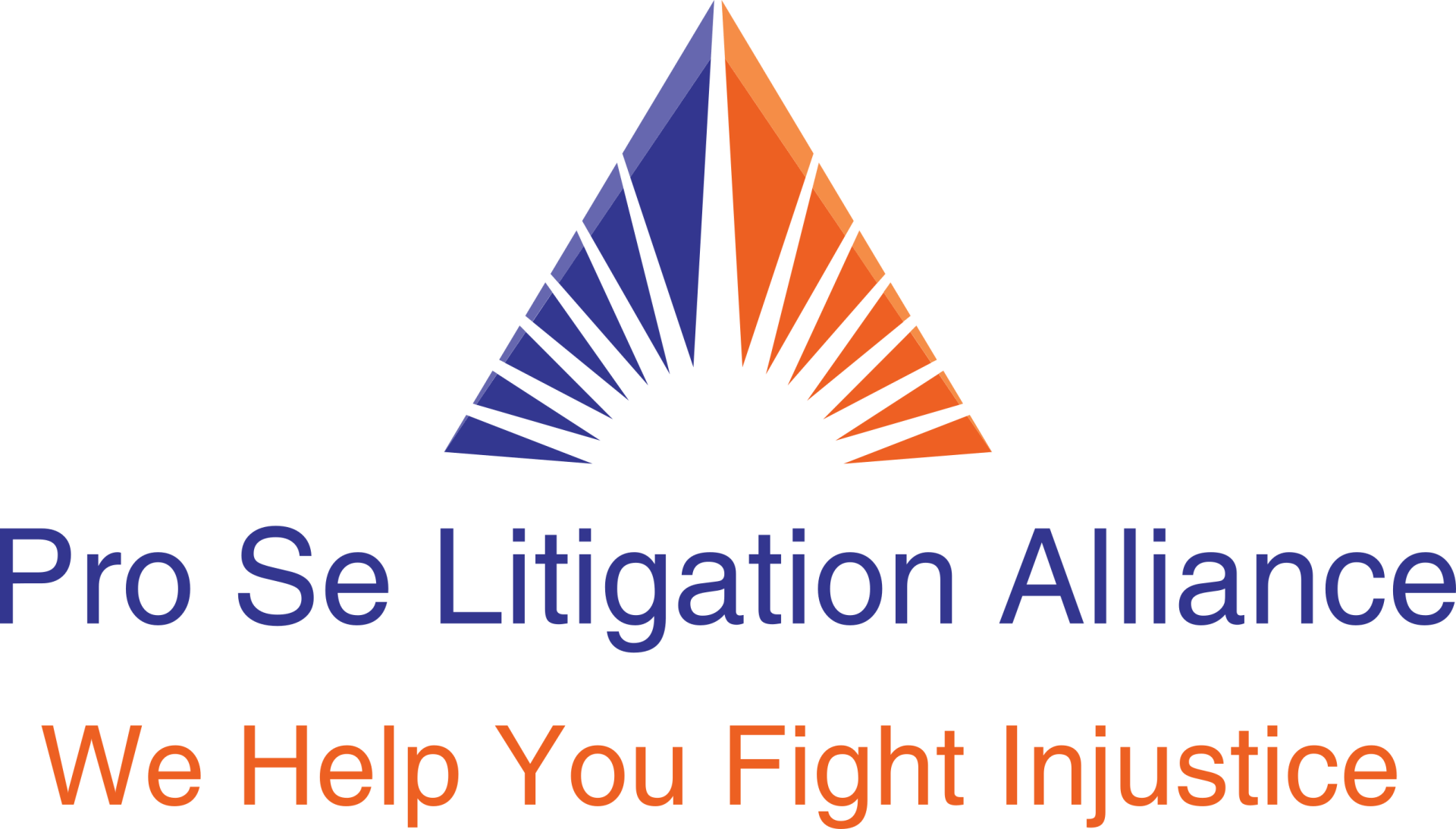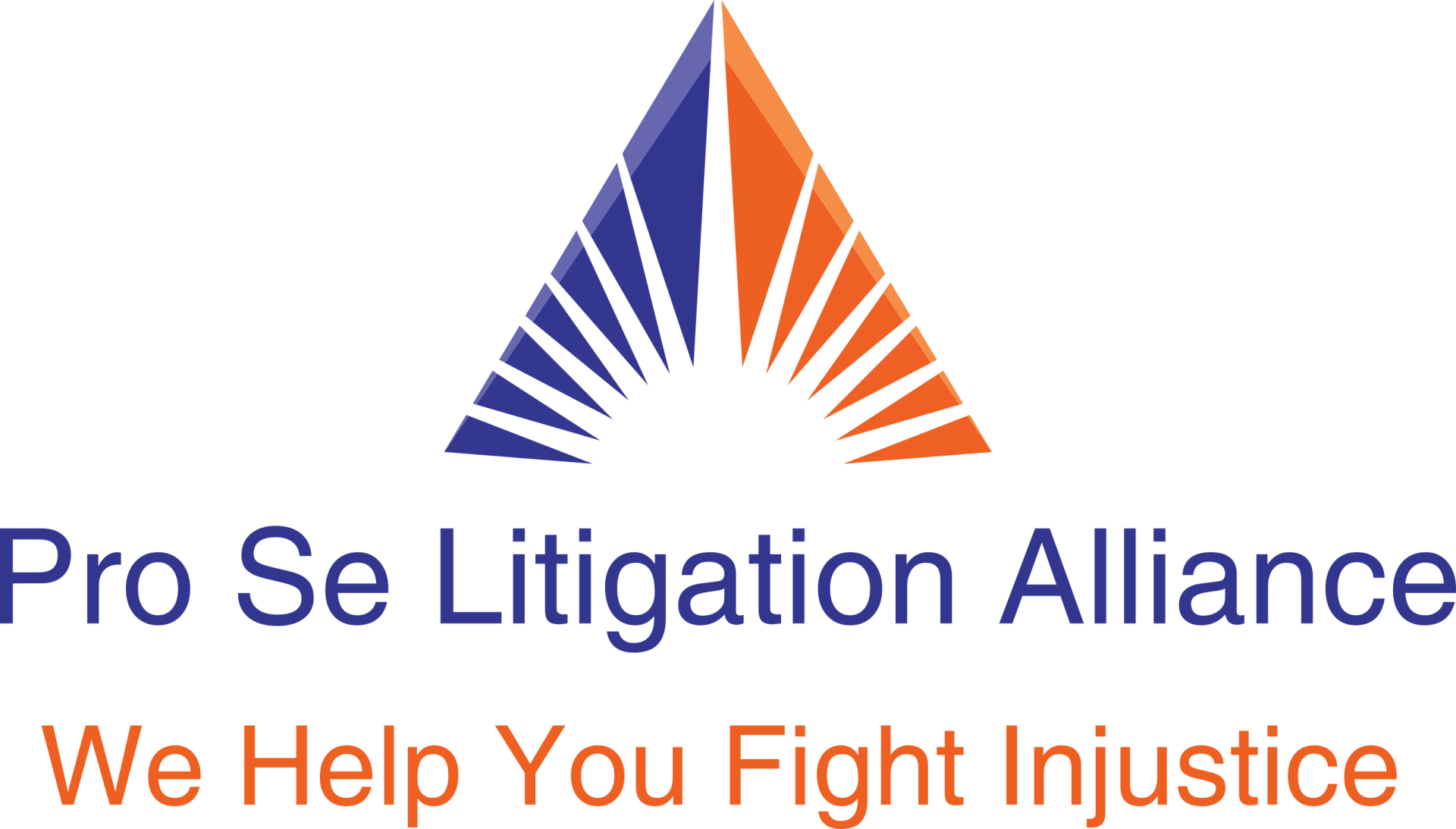The term "pro se"
is Latin, meaning "for oneself"
or "on behalf of oneself."
It is a practice where individuals represent themselves in pending legal proceedings before administrative bodies or courts. Pro se representation is Constitutionally protected but frowned upon in most courts. An example of pro se representation is representing yourself or your business in court without an attorney. Or, you could be involved in a lawsuit where the other side is self-represented.
Back
There are valid grounds for pro se representation in certain circumstances. But there are other reasons why the procedure is not looked upon favorably and may, in fact, place individuals in legal peril.
The Roots of Pro Se Representation
The venerable tradition of self-representation in legal matters is also embedded in the U.S. Constitution. Although pro se is not expressly covered in the Constitution, courts have held that an individual is legally entitled to self-representation.
There are a number of reasons why individuals elect to represent themselves pro se. They include strong personal views about a particular matter, refusal or inability to work with legal counsel, and inability to find legal counsel who is willing to work with an individual, often because of the position taken by the pro se party in the litigation.
But the driving force for much pro se litigation is economics. The high cost of legal representation often leads individuals to represent themselves. This trend has been branching out in recent years as legal fees and expenses continue to mount. Courts may even make exceptions to this limitation on occasion.
There are a number of restrictions courts impose on pro se litigation. They include instances in which individuals are unduly disruptive, clearly lacking in knowledge, or have engaged in improper or abusive practices. There is a growing tendency, although occasionally controversial, for courts to proscribe litigation by individuals who repeatedly engage in abusive tactics while litigating pro se. The practice of self-representation or pro se litigation can be either a boon or a bane to litigants.
A List of Pro Se Limitations
There are, however, a number of limitations that courts impose upon pro se litigation. In Minnesota, for example, organizations such as corporations or other businesses cannot represent themselves, although Conciliation Court allows pro se representation with proper written authorization. Corporate entities are considered in the eyes of the law as a separate individual and generally need to be represented by legal counsel, rather than an individual or even the proprietor of the business.
However, more obligations and obstacles on courts and litigants in connection with pro se litigation.
Adversaries also are wary of dealing with pro se litigants. Because they often are unfamiliar with legal procedures, pro se litigants can create confusion and frustration for other parties, which tend to drive up the time and cost involved in litigation.
How To Represent Yourself
Some of these problems can be avoided by a mixture of pro se litigation coupled with professional advice. On occasion, the benefits of pro se litigation can be achieved while avoiding some of its detriments.
An individual can represent themselves but have informal advice or counsel furnished by a lawyer without the lawyer making a formal appearance on behalf of the litigant. By staying in the background or on the sidelines, the lawyer can offer guidance to a pro se party without the litigant incurring a substantial legal expense.
Pro se litigation remains an important right for individuals, but, like other rights and privileges, it can be abused and misused. Prudent practice generally dictates that, except in relatively minor matters, individuals should not engage in representing themselves. While pro se practice is of ancient origin, so too is the old saying:
"People who represent themselves have fools for clients."
Pro se litigation poses a number of problems for both self-represented individuals and their adversaries. Litigants who are proceeding on a pro se basis usually are held to the same legal standards as attorneys. This means that if they fail to follow court rules and regulations, they are subject to litigation sanctions, and the excuse that they are not legally trained may often fall on deaf ears.
Pro se litigants are often viewed askance by judges and other adjudicators. Judges prefer to deal with lawyers, who are more accustomed to legal procedures, and they fear that they must often bend over backward to assist pro se litigants, even though they are not legally obliged to do so.
Abilities Needed To Be A Pro se Litigant*
*or abilities you will learn being a Pro se litigant!
The ability to deal with rejection
You must be able to take rejection without defining it as failure. Always remember if two lawyers are walking out of the courtroom, both were overpaid. Just kidding. If two lawyers are walking out of a courtroom, one of them lost! You must interpret rejection as a battle, not the war.
The ability to continue after being knocked down.
Sometimes you may need to take a day or two to recover. You may need to let your rage diminish. You will need the ability to get back up and say, "OK, what can I do now?" or "What didn't I do?"
The ability to view things from many different angles.
You need the ability to think more in terms like, "That is A view" versus "There is my view and the wrong view." "That is A defense" versus "They don't have a defense." Being impatient or intolerant with another's view, defense or assertion appears as immaturity in the courtroom. Opposing side is supposed to have a view, defense or assertion.
Many times you will deal with outrageous arguments using deceit and/or lies that would never be used as arguments outside the courtroom.
The ability to be precise in written and spoken word.
"I did not have sexual relations with Monica Lewinsky." Ms. Lewinsky's allegations involved oral sex. The definition of sexual relations does NOT include oral sex. President Clinton never denied Ms. Lewinsky's sexual allegation....but millions thought he did!
"There is no improper relationship."
There isn't now, but WAS there? Many of us are raised speaking and writing without precision. We fill in the gaps with what we believe is the intended meaning. Precision in the spoken and written word will take time to learn.
The ability to remain dignified regardless of the circumstances.
You will deal with all sorts of absurdities, injustices and indignities. You will be told nonsense and lies with people looking you straight in the eye. You must learn to stare absurdities, injustices and indignities square in the face without losing your cool while still defending yourself. Being outraged or emotional does NOT carry the weight it may carry outside the courtroom.
The ability to be persistent and thorough.
Many in the legal profession say the one who wins is the one with the most stamina. Of course, that usually means the one with the most money to spend.
Persistence and thoroughness are necessary elements to any successful litigation.
The ability to remain in control of your emotions.
When you are litigating Pro se, it is particularly difficult to separate your emotions during litigation. Be forewarned, emotionalism during litigation can and most likely will be used as an excuse to cut you off.
The ability to know and accept your wrong after being 100% convinced you are right.
This can be a humbling and learning experience. Sometimes, despite our convictions or our research, there will be times we will miss or misinterpret the point and be wrong. Thinking law and litigation is a mixture of morality, common sense and fairness is a common source of this experience.
Morality, common sense and fairness may be elements in the drafting of laws, but the implementation of law may not favor morality, common sense or fairness as these terms are generally defined.
The ability to hold your position when right when everyone is saying you are wrong.
Remember case law is made by litigants questioning Judge's decisions. There may be times lower court procedure and trials become a formality in order to get the higher courts to rule on your issues.
The ability to separate morality, common sense, fairness and law.
Morality, common sense and fairness may be elements in the drafting of laws, but the implementation of law may not favor morality, common sense or fairness as these terms are generally defined.
The ability to see Judges and Lawyers as human beings.
Most have to have several hearings before they can see Judges or Lawyers as human beings. Usually the behavior from Judges and Lawyers will eliminate any pedestal you may have placed them on.
The ability to stay on point.
Court proceedings many times are nothing more than obstacle courses designed to get you off point. If they can get you off point, your issues get lost. Frankly, it takes guts to insist on remaining on point and sometimes that could mean getting the Judge back to the point.
The ability to present your case without preaching.
So many Pro se litigants preach in their documents and during hearings. They want to give the court a history lesson on the great principles this country was founded on. Argue the merits of your case with minimal preaching.
Most Important! The ability to recover from the stress.
Litigation, many times, can damage a person like little else can.
You MUST recover and move on so you can be there to help others. Process your rage into a recovery!
FOOD FOR THOUGHT
Many times the reason or purpose for events in our life initially escapes us,
but I am certain we can find reason and/or purpose in everything that happens!
It takes a short time to learn to exercise power, but a lifetime to learn how to avoid abusing it.
"We are no longer a country of laws, we are a country where laws are "creatively interpreted."


